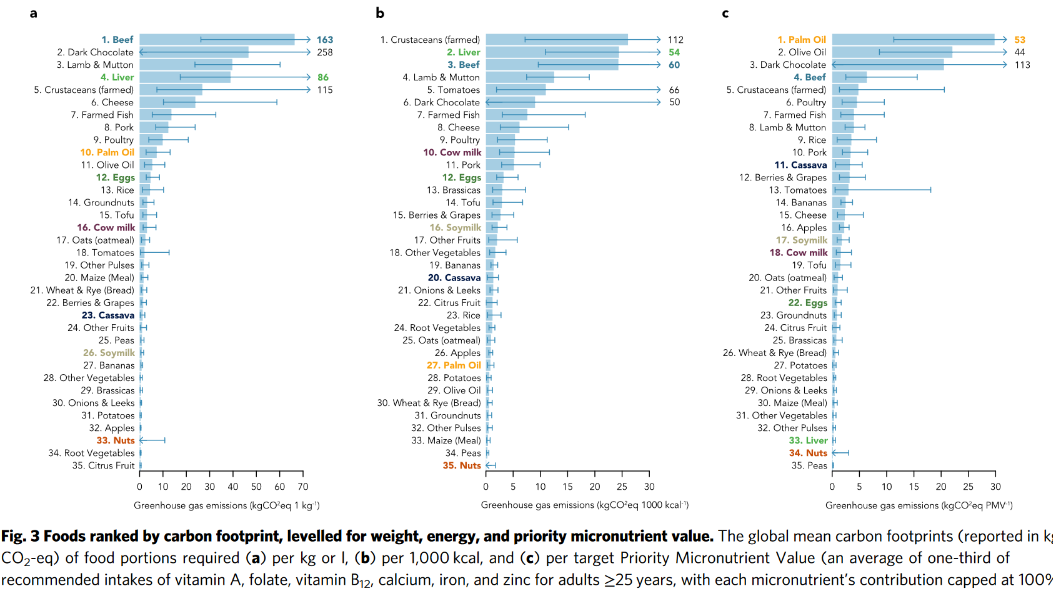I don't like posting about other diets, as everyone should be able to make their own choices. However, given the frequency of these arguments and talking points against ASF in other non-diet communities I think posting this ReThink Meat episode is a net benefit to the dialog.
The Vegan Diet: Myths, Risks, and What You Need to Know
Is a vegan diet as healthy and sustainable as it’s made out to be? In Episode 4 of ReThink Meat, we take an open-hearted, nonjudgmental look at the vegan lifestyle and separate fact from fiction.
This 27-minute episode busts 4 common myths about vegan diets—including the idea that “everyone is doing it” and that it’s the most sustainable choice. We also dive deep into the nutritional challenges of a plant-only diet, revealing why it’s so difficult to get all the nutrients your body needs from plants alone.
👀 What you'll learn:
- Which nutrients are hardest to obtain on a vegan diet (and why they matter).
- The irreversible consequences of B12 deficiency, especially for kids.
- How vegan diets impact mental health, bone health, athletic performance, and critical life stages like pregnancy, childhood, and lactation.
- Firsthand accounts of people who’ve struggled with long-term vegan diets.
- Why some countries actively discourage vegan diets for certain populations.
- While this episode highlights the serious risks of a vegan diet, it does so with compassion and respect for individual choices. Walk away with a deeper understanding of the challenges and consequences of this lifestyle—and the tools to make informed decisions about your health
Summary:
ReThink Meat: And Veganism | episode four
In this episode of ReThink Meat, the host, a holistic nutritionist, explores common misconceptions about vegan diets, their health implications, and environmental impact. Contrary to popular beliefs, vegan diets can lead to nutrient deficiencies, health issues, and may not be as eco-friendly as assumed. The video shares personal experiences, research findings, and advocates for a balanced view on plant and animal-based nutrition.
Key Points
Myth 1: Everyone is Vegan
The belief that everyone who cares about health and the environment is vegan is misleading. Studies indicate only about 0.5% of U.S. adults identify as vegan, and most abandon the diet within three months.
Myth 2: Vegan Diet is Environmentally Better
Common claims that vegan diets are superior for the environment are challenged. Research shows that a significant shift to veganism may only reduce greenhouse gases by 2.6%. Additionally, many plant products involve harmful agricultural practices, countering sustainability claims.
Myth 3: Vegan Diet Stops Animal Death
Contrary to expectations, plant agriculture is responsible for numerous animal deaths due to field clearing and pesticide use. Analyses suggest plant-based diets may lead to more animal deaths per kilogram of protein than meat consumption.
Myth 4: Nutrients Easily Obtained from Plants
Obtaining essential nutrients solely from a vegan diet is difficult. Deficiencies in vitamin B12, iron, omega-3 fatty acids, and others are common among vegans, which can lead to serious health issues, including mental health disorders.
Nutritional Deficiencies and Health Risks
Vegan diets can lead to deficiencies associated with various health issues such as depression, osteoporosis, and hormonal disruptions, particularly in women.
Importance of Balanced Diet
The video suggests that a dietary approach combining both plant and animal products is essential for optimal health and nutrients. It promotes awareness of ethical farming practices and calls for respect for individual dietary choices.
Consequences for Children
Vegan diets can pose serious risks to children, potentially leading to developmental issues. The video highlights warnings from multiple countries about the health consequences of vegan diets for vulnerable populations.
